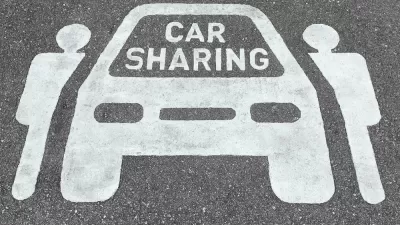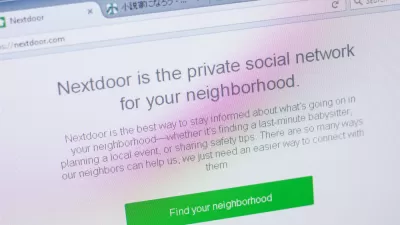Ride share websites and mobile apps take the guesswork out of finding a ride and move social networking offline and onto the open road, fueling a revival of car-pooling, reports Mickey Meece.
It seems like just yesterday that The New York Times relegated car pools to the dustbin of history, along with disco and hitchhiking. Car-pooling, or ride sharing, has seen its ups and downs in popularity in the recent past, and has been under threat by the convenience that comes with owning and driving your own car. But, as Meece notes, ride-sharing and car-pooling, "are having a moment." So what's changed in the past year?
"'It's been a tough sell in the U.S. for a long time,' said David Burwell, director of the energy and climate program at the Carnegie Endowment for International Peace. What is different now, Mr. Burwell said, is the advancement of digital technology and social networking, 'which removed a significant amount of barriers.'"
With a laundry list of ride share sites now available, it seems that people are coming around to the idea again. Social media sites have become such an integral part of people's daily lives that it's no wonder people have started using them as decision-making tools. Meece claims that safety concerns, too, are being satisfied by the requirement of some of these sites to log in through Facebook, which allows users to conduct their own background checks on potential passengers. Ridejoy, for example, "plans to introduce digital identification verification and background checks to its other safety mechanisms, which include Facebook integration, user reviews and references, plus a safety checklist sent to users."
These ride share sites and apps are another way of "taking online social networks offline," allowing virtual socializing to move into the real world. "If car-pooling is done right," said Carpooling.com chief executive Markus Barnikel, "you'll likely have a better sense of the person driving a ride-share vehicle than you do a bus or taxi driver, and can even forge a relationship with them."
FULL STORY: Car-Pooling Makes a Surge on Apps and Social Media

Maui's Vacation Rental Debate Turns Ugly
Verbal attacks, misinformation campaigns and fistfights plague a high-stakes debate to convert thousands of vacation rentals into long-term housing.

Planetizen Federal Action Tracker
A weekly monitor of how Trump’s orders and actions are impacting planners and planning in America.

In Urban Planning, AI Prompting Could be the New Design Thinking
Creativity has long been key to great urban design. What if we see AI as our new creative partner?

King County Supportive Housing Program Offers Hope for Unhoused Residents
The county is taking a ‘Housing First’ approach that prioritizes getting people into housing, then offering wraparound supportive services.

Researchers Use AI to Get Clearer Picture of US Housing
Analysts are using artificial intelligence to supercharge their research by allowing them to comb through data faster. Though these AI tools can be error prone, they save time and housing researchers are optimistic about the future.

Making Shared Micromobility More Inclusive
Cities and shared mobility system operators can do more to include people with disabilities in planning and operations, per a new report.
Urban Design for Planners 1: Software Tools
This six-course series explores essential urban design concepts using open source software and equips planners with the tools they need to participate fully in the urban design process.
Planning for Universal Design
Learn the tools for implementing Universal Design in planning regulations.
planning NEXT
Appalachian Highlands Housing Partners
Mpact (founded as Rail~Volution)
City of Camden Redevelopment Agency
City of Astoria
City of Portland
City of Laramie





























